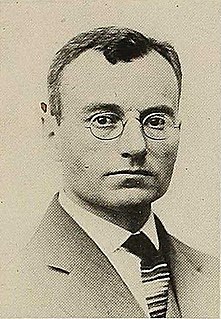A Quote by Carl L. Becker
To ask whether the natural rights philosophy of the Declaration of Independence is true or false, is essentially a meaningless question.
Related Quotes
The Declaration of Independence was to set forth the moral justification of a rebellion against a long-recognized political tradition - the divine right of kings. At issue was the fundamental question of whether men's rights were God-given or whether these rights were to be dispensed by governments to their subjects. This document proclaimed that all men have certain inalienable rights. In other words, these rights came from God.
The doctrine of the Declaration of Independence predicated upon the glory of man and the corresponding duty to society that the rights of citizens ought to be protected with every power and resource of the state, and a government that does any less is false to the teachings of that great document - false to the name American.
Thomas Jefferson understood the greater purpose of the liberty that our Founding Fathers sought during the creation of our Nation. Although it was against the British that the colonists fought for political rights, the true source of the rights of man was clearly stated in the Declaration of Independence. Jefferson wrote that all humans are endowed by their Creator with certain unalienable Rights . . . . It was self-evident to him that denying these rights was wrong and that he and others must struggle to win what was theirs.
Congress actually authorized the printing and payment for a Bible. That illustrates the high regard that the Bible was held in early American society. We see biblical ideas woven into the founding documents of our country like the Declaration of Independence and the Constitution. The Declaration of Independence explicity states "that all men are created equal, that they are endowed by their Creator with certain unalienable Rights..." This is a biblical idea stemming from the dignity of all people - Psalm 139:14 - we are fearfully and wonderfully made.
Before the formation of this Constitution it had been affirmed as a self evident truth, in the Declaration of Independence, very deliberately made by the Representatives of the United States of America in Congress assembled that 'all men are created equal, and are endowed by their Creator with certain unalienable rights' This declaration of Independence was received and ratified by all the States in the Union & has never been disannuled. May we not from hence conclude, that the doctrine of Liberty and Equality is an article in the political creed of the United States.
All of depiction is fiction, it's only a question of degree. When we think of images, such as the signing of the declaration of independence, we think of that wonderful John Trumbull painting Declaration of Independence that is at the Yale Art Gallery and on the back of our money. When we think of that historical moment we think of that image. That image never happened like that. All of those people were never in that room together to sign that paper. It's a beautiful fiction to help us have an understanding of what went on.







































